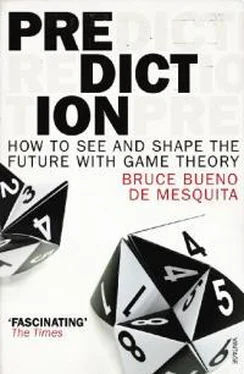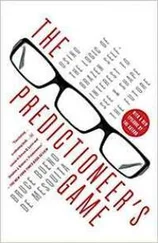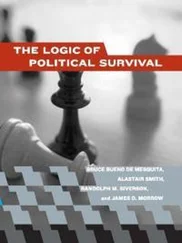The Greek writer Xenophon provides us with an explanation of what happened to Sparta at Leuctra. Here is what we know from him as Sparta approached its battle against Thebes. We know that the army of General Epaminondas, the leader of Thebes’s military campaign, was greatly outnumbered by the Spartan army under King Cleombrotos. There were about 11,000 Spartan soldiers to only 6,000 for Thebes. The manpower advantage being with Sparta, victory should have been relatively easy, particularly because Sparta had a history of superior cavalry as well as foot soldiering. It also had a phenomenal track record of military success. What was the status of Sparta’s usually exceptional cavalry as the battle approached?
Xenophon reports, regarding the contending cavalries (where Thebes had a numerical advantage):
Theban horses were in a high state of training and efficiency, thanks to their war with the Orchomenians, and also their war with Thespiae; the Lacedaemonian [i.e., Spartan] cavalry was at its very worst just now. The horses were reared and kept by the richest citizens; but whenever the levy was called out, a trooper appeared who took the horse with any sort of arms that might be presented to him, and set off on an expedition at a moment’s notice. These troopers, too, were the least able-bodied of the men—just raw recruits simply set astride their horses, and wanting in all soldierly ambition. Such was the cavalry of either antagonist. 1
The few remaining Spartiates—the richest citizens, as Xenophon reports—withheld their best horses and their best horsemen from the risks of battle. These they thought better kept to run in races on which there would be heavy betting and lots of money to be made. Thus, Sparta’s few remaining citizens, the self-centered and the greedy, chose to put their worst horses and least experienced horsemen in battle and to keep the crème de la crème for themselves. They sacrificed their city-state to preserve their personal prospects at the races. As I said earlier, the Spartans apparently loved their horses more than their country—a telling symptom of the sickness that was draining the life of the famed city-state.
Looking at Sparta’s decline from this particular angle, I constructed a little data set to put into the forecasting program. It shows that the Gerousia and kings were committed to protecting Spartan security from the outset even if it meant personal sacrifices. I assumed that the Ephors started out favoring making money, as indeed it appears they did. The program shows, however, that they would quickly sacrifice their personal wealth (for instance, their horses) to protect Sparta. But what of the colonial commanders and the richest Spartiates, who remained in Sparta? They were the core of the army and the most important people deciding whether to provide their very best for the Spartan cause or for themselves (in horse terms, to use them for the cavalry or to use them for the races). The model shows them to be utterly impervious to pressure from their government, their kings, the Ephors, and the Gerousia. All the government’s checks and balances, all the history of Spartan devotion to the common good, all the threats of the moment couldn’t convince these citizens to do what was best for their country.
It seems that the society’s newfound wealth, and the shift in people’s values produced by that wealth, changed their behavior. Just as in the earlier discussion of Leopold in the Congo and in Belgium, Sparta’s changing conditions led to changed behavior that in turn changed the course of Sparta’s future. Had any smart Spartan looked at the data enough in advance, perhaps they would have seen the threat of collapse that their new “game” exposed them to, and maybe, just maybe, they would have thought more about the long term.
So it was that Sparta fell quickly from monumental power to weak and vulnerable backwater. There was nothing to be done to save Sparta according to the game model. The victory against Athens sowed the very seeds of Sparta’s destruction.
Can we see here a larger lesson to be learned about the risky game that empire expansion might generally entail? Might U.S. efforts to spread democracy, to overthrow “rogue” regimes, come back to bite us, creating the sort of greedy, self-centered egoism at the top that brought down Sparta, or might these efforts rein in the worst abuses suffered by hapless souls elsewhere at the hands of their own greedy, grasping governments? These are questions worth pondering. History certainly has much to teach us.
Sparta’s defeat revolutionized thinking in the Greek world and made possible the resurgence of Athens. The Athenians, with a more democratic—by the standards of the day—and therefore more accountable administration, were able to adjust to their earlier defeat. They could make changes that allowed them to bide their time, rebuild their strength, and reclaim Greek leadership when Sparta faltered. Sparta’s increasingly concentrated oligarchy left it with little to fall back on in the face of its unprecedented defeat. Maybe, then, we are all fortunate that Spartans loved their horses so much. Had they not, the early Greek experiment with democracy might have failed miserably, and this most beneficial form of government would have died so soon that no one would have thought to resurrect it a couple of millennia later.
Sparta’s love of horses reminds me that it is time to get back in the saddle again. You know—where a friend is a friend. I have in mind the friendship that Luís de Santangel—you’ll find out about him soon enough—owed to Ferdinand and Isabella of Spain and the consequences of that friendship for Christopher Columbus and even for those of you reading this book anywhere in the Western Hemisphere, the so-called new world. Santangel is the unsung hero of our next game. He reminds me of the French bankers we met in Game Theory 102. They, like Santangel, understood that demanding too much leads to nothing. Just as the French bankers put a merger together by agreeing to let the German executives remain in Heidelberg, Luís de Santangel figured out how to merge the interests of Spain’s monarchs with those of Columbus, to the benefit of both.
So let’s leap ahead now to the end of the fifteenth century. That time, the age of discovery, created another, new form of challenge to the dominant political order of the day. Whereas Sparta suffered from becoming rich, Spain suffered in comparison to its great-power neighbors like Portugal and the Catholic Church because it was poor. With Santangel’s help, Columbus would change all of that, at least for a century or so, but not before he would have to swallow some pretty bitter pills in order to make a deal.
WHY SPAIN “DISCOVERED” AMERICA
In fourteen hundred and ninety-two Columbus sailed the ocean blue. I know, you already know that. It is curious, though, that most of us know very little about why Columbus, an Italian navigator recently employed by the Portuguese court, sailed under the Spanish flag. The story behind Ferdinand and Isabella’s decision to back Columbus’s journey rests on the thinnest of distinctions between rejection and acceptance. Surely had it not been for Columbus, someone else would have found the “new world,” but then the course of European and American history would have been radically different. There would have been no Spanish empire, no Spanish armada for the British to defeat, probably no Sir Walter Raleigh, no Monroe Doctrine, no Juan or Evita Perón, and who knows what else. (If you will allow me a little personal view on Columbus’s importance, probably without him there wouldn’t even be a Bueno de Mesquita family anymore. They were pretty prominent back then, operating within the Columbus family’s fiefdom of Jamaica as—of all things—pirates of the Caribbean. 2)
Читать дальше











